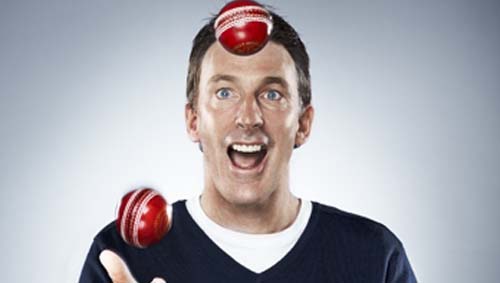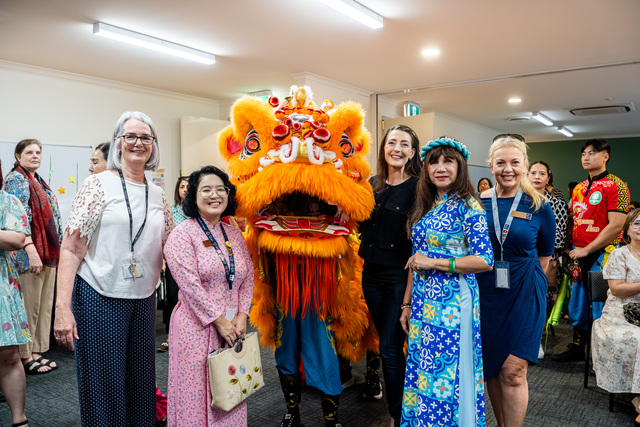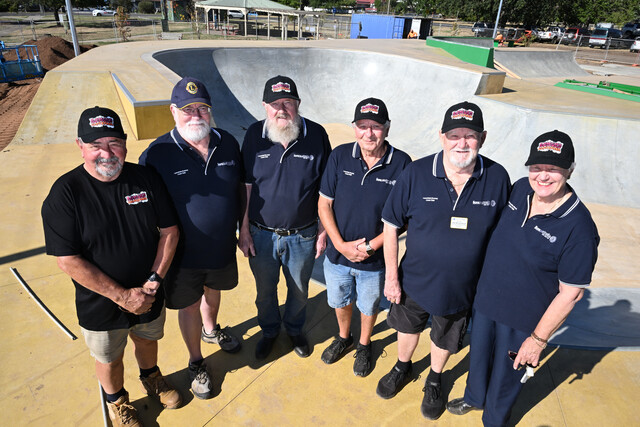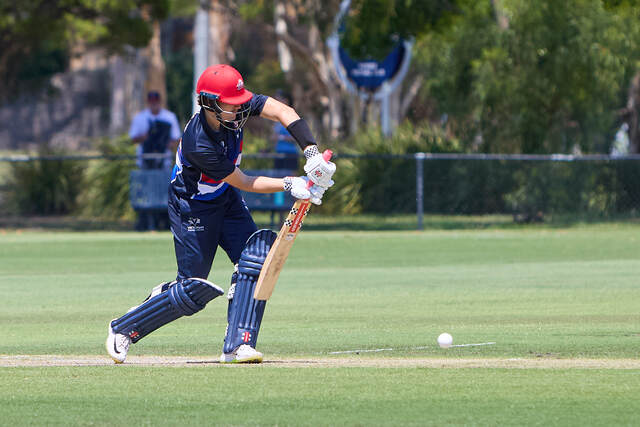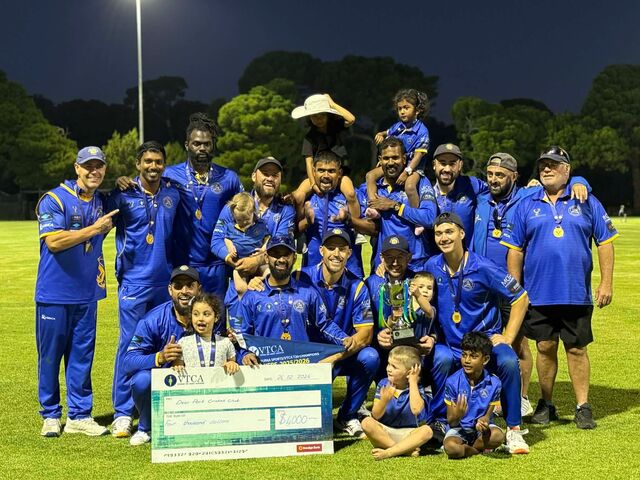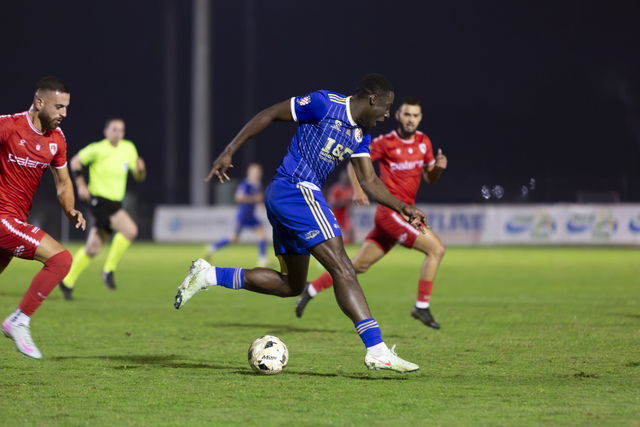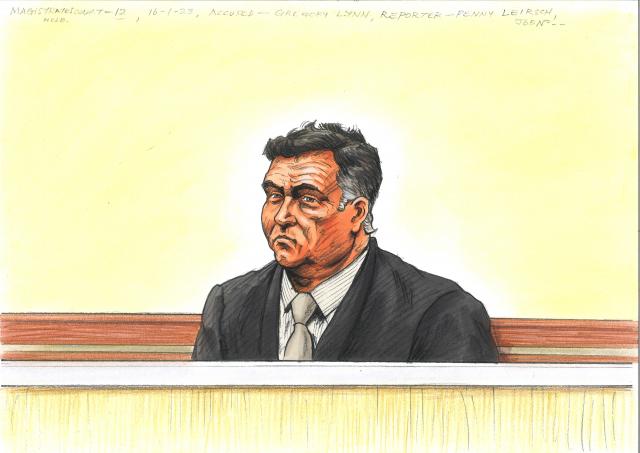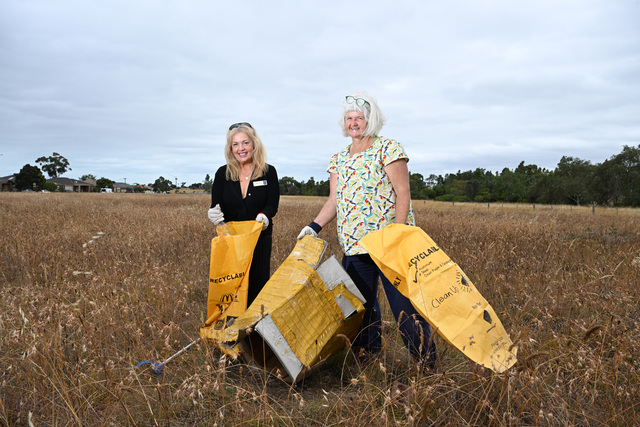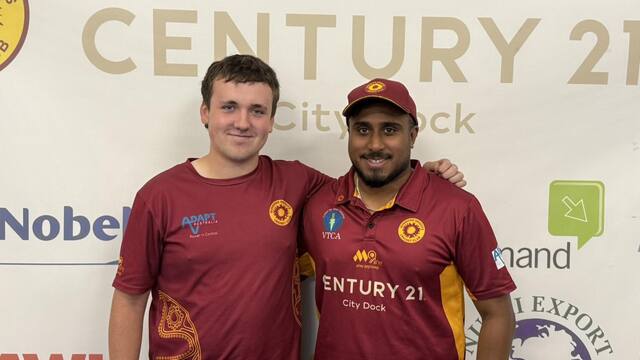The truth is, in sport near misses are often just as memorable as the real thing. In Damien Fleming’s case, one particular dropped catch might be even better, because it was just … so … torturously … close!
Most people know Fleming took a hat-trick in his debut Test for Australia. And when you really think about it, that fact is extraordinary. A skinny 24-year-old from Perth claims three Pakistani scalps in consecutive balls the first time he wears the famous baggy green cap. The first wicket, a catch at mid-wicket, the second a spearing LBW, the third caught behind. But Fleming plays down the feat.
“It’s not something you really aim for,” he says. “The big one for me was getting the baggy green on your head. And then we broke records in Test cricket and I probably played with seven or eight of the greatest players ever. That’s what you look back on.”
As famous as that first hat-trick made Fleming, the almost second is invariably picked over more, especially given the profile of the culprit who bungled it. The question that Fleming has asked himself umpteen times since is, would he be dining out on the story as often if Shane Warne had actually snared the slips-bound rocket that ricocheted off his hands? Would it be better to have two genuine hat-tricks or one and two-thirds, involving perennial media magnet Warney?
“The conclusion I’ve come to is that I don’t reckon people would’ve remembered it as much if Warney had actually taken it,” Fleming says. “Real cricket fans would know I took two Test hat-tricks, but by him dropping it and Warne being that famous, a lot more people know that, don’t they?”
Like most retired sportspeople, Fleming talks about his cricketing career openly and freely. Since then he’s become a father, I wonder how that experience compares to the highs of representing Australia? “You just can’t compare them,” he says. “The daily joys of fatherhood and hopefully grandfatherhood is going to be there for the rest of your life; whereas playing for Australia was a seven-year period.”
We’re sitting in a café in Ashburton, with people milling all around us. There are no interruptions for autographs or “are you the guy who …?”. The past is clearly safe where it is, but the present is full of promise for Fleming. The conversation covers as much of Fleming’s current gig as a commentator as it does his time as one of Australia’s spearhead quicks.
It was earlier this year that the surprise verdict was delivered by current and former players that he was the most popular cricket commentator in the country, edging out even ageless legend Richie Benaud. Fleming loves the work, and takes it seriously.
“Even now I’m still looking to improve,” he says. “To take it different levels, to be more entertaining, to give a better insight. So I’ve got my commentary goals, as I had my cricketing goals.”
Fleming could happily talk about the vagaries of commentary all day, but that won’t do. One thing I’m eager to tell Fleming now I have the chance is that I’m sorry, but just like the song goes, I don’t like cricket, oh no. And I don’t love it, either. I used to. I have more fond cricket memories than I do of football. I have memories of blokes in coloured pyjamas running around under lights, playing well past my bedtime, with big blazing batsmen – Deano! – and gangly West Indian quicks going at each other.
I have memories of some poor Kiwi bloke being called a wanker, whatever that was. Memories, too, of tension and drama and a whole stand mirroring the every move of a hefty bloke with a mo. I have bloody excellent memories of cricket. Now, it’s grim-faced whippets with reality-TV girlfriends also selling me undies and cricket bats and turning a triple-century knock into a seven-figure sponsorship. Where’s the fun in that?
Damien Fleming’s room-mate on that first tour, in 1994-95, says the fun has gone the way of the facial hair. Former Test selector Mervyn Hughes was recently quoted as saying “facial hair brings the best out of the players”.
“When I played, a lot of people had moustaches – David Boon and Graham Gooch [former England skipper] both had lovely moustaches,” Hughes said in The Telegraph. “They are just going out of the game. I firmly believe it should be brought back. I would like to see the guys with moustaches, beards, goatees, half-beards and half-shaved heads.”
Despite being an admittedly “odd couple” in their hotel room – “I never said a word in my first few years and he was the loud extrovert” – Damien and Mervyn have found accord over the years. While the pair were “the messiest guys of all time” in the Australian team, they have forged a fraternal bond. Hughes is now “like an older brother”. “I’d trust him with my life. He’s the most honest, polite person I’ve played with.” This tender bromance notwithstanding, Fleming happens to agree with him on the point about a little extra growth going a long way.
“I totally agree with Merv,” he says. “We’re a mullet short, we’re a goatee short, we’re a Boonie moustache short. And for me, I’d rather it come from the quicks. When you talk about the characters, how many characters are batsmen?”
Fleming is obviously biased towards his kind, the bowlers, but overall he’s philosophical about the state of cricket. To put it bluntly, they had more fun back in his day, but they make more money now: “I suppose nothing’s perfect. They make millions of dollars now, whereas my era was quite well off, the era before got nothing.”
Is it as simple as declaring the current-era professional compared to a semi-professional and before that amateur sport? “It was probably semi-professional in my time in terms of money. I don’t think we were any less professional in our training. We still had to sacrifice a lot. You had to drift away from from your mates a bit because you were playing cricket. But at least there was a culture where it was OK to celebrate.
“I remember we won an Adelaide Test at 11 o’clock one time and we knew we’d be able to drink for the rest of the afternoon in the dressing rooms, then go out and celebrate in public, as well. We’d pick a pub, we’d celebrate with the punters. So the punters loved it. We were out there doing our thing. And then you travel and you train hard.
“With fines and all that now, that’d be just asking for trouble. I don’t think it’s really the players’ fault that it’s less fun. It’s the standards within cricket Australia and the standards within the public. It would be all through the papers now, wouldn’t it, because everyone’s got a phone.
“I can tell you the younger players coming through still love it. If you talk to older players who have started playing in premier leagues around the world, they’re out there in the field going ‘Who are my teammates? What am I doing this for?’ It’s just money.
“Whereas, if you ask a lot of young players, they still want to do it. You’re still playing for your country, and I think that Test cricket has still got that feeling to it. It still means something to play for Australia.”
Read: Damien Fleming’s book Bowlology: Cricket, Life and Stories From the Avenue of Apprehension is available from good bookshops.

